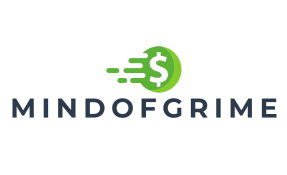Table of Contents
ToggleRunning a business is a thrilling ride, but sometimes it feels like you’re strapped to a roller coaster with a few too many loop-de-loops—especially when debt comes into play. It sneaks up like that one friend who always “forgets” their wallet. But don’t worry, there’s hope! Business debt solutions are here to save the day, offering a lifeline to those tangled in financial webs.
Navigating the world of debt can be daunting, but understanding the options available can make all the difference. From negotiation tactics to restructuring strategies, these solutions can transform a sinking ship into a buoyant vessel ready to sail. So buckle up and get ready to explore how to turn that mountain of debt into a manageable molehill, all while keeping your sense of humor intact. After all, who said tackling debt couldn’t be a little fun?
Understanding Business Debt Solutions
Business debt solutions encompass a range of strategies aimed at managing and reducing financial obligations. These solutions provide businesses with pathways to overcome financial distress.
Definition of Business Debt Solutions
Business debt solutions refer to methods and plans that assist companies in addressing their outstanding debts. Options include debt negotiation, consolidation, and restructuring lending agreements. Each method offers distinct advantages tailored to specific business scenarios. For example, negotiation can lead to reduced interest rates, while debt consolidation allows for single monthly payments. Hence, understanding these options helps businesses select the most effective strategy for their unique situations.
Importance for Entrepreneurs
Entrepreneurs face unique challenges when managing debt, making solutions critical for their success. Effective debt management can enhance cash flow, improve credit ratings, and foster growth opportunities. Additionally, addressing debt proactively can instill confidence among investors and partners. Many entrepreneurs find that navigating debt effectively allows for better resource allocation, ultimately leading to increased profitability. By focusing on debt solutions, business owners create a more stable financial future, encouraging innovation and expansion.
Types of Business Debt Solutions

Businesses can explore various debt solutions tailored to their financial needs. Understanding these options helps entrepreneurs navigate their financial obligations more effectively.
Debt Consolidation
Debt consolidation combines multiple debts into a single loan, simplifying payments for a business. Entrepreneurs often choose this strategy to lower interest rates and reduce monthly costs. Lenders usually facilitate consolidation by offering a loan that covers all existing debts. This approach allows businesses to focus on a single repayment plan instead of juggling multiple creditors. Flexibility in repayment terms often enhances cash flow, making it easier for business owners to manage finances.
Debt Settlement
Debt settlement involves negotiating with creditors to reduce outstanding balances. Companies often employ this strategy when struggling to meet payments and facing potential defaults. Negotiators typically aim for a settlement amount that is less than the total owed, resulting in immediate financial relief. Successful settlements can significantly ease cash flow issues and eliminate lengthy repayment periods. Business owners that opt for debt settlement should remain cautious, as this option can impact credit scores.
Bankruptcy Options
Bankruptcy options provide a legal pathway for businesses facing insurmountable debts. Chapter 7 and Chapter 11 bankruptcy serve distinct purposes for different business types. Chapter 7 involves liquidating assets to pay off debts, while Chapter 11 allows for restructuring while continuing operations. Each option has specific guidelines and implications for business owners. Selecting the right bankruptcy type can help protect assets and provide a fresh start, facilitating recovery and future growth.
Evaluating the Right Solution
Choosing the right business debt solution involves careful consideration of various factors. Entrepreneurs should evaluate their financial situation thoroughly before proceeding.
Assessing Your Business’s Financial Situation
Understanding the current financial position is essential for informed decision-making. Review cash flow statements and balance sheets to identify available assets and liabilities. Analyzing revenue trends can highlight patterns that affect debt repayment capabilities. A clear picture of monthly expenses also helps prioritize obligations. This assessment allows business owners to pinpoint areas that require immediate attention, ensuring they choose the most appropriate solution.
Factors to Consider in Choosing a Solution
Several key factors influence the selection of a debt solution. Business size plays a significant role, as larger organizations may have more options available. The nature of existing debts, including interest rates and terms, impacts decisions as well. Each solution’s effect on credit ratings must also be understood before making a choice. The estimated timeline for recovery is another critical consideration. Evaluate how quickly each option can stabilize finances and restore cash flow while fostering long-term growth.
Pros and Cons of Business Debt Solutions
Evaluating business debt solutions involves understanding both their advantages and disadvantages. Each solution presents unique impacts on a company’s financial health.
Advantages
Business debt solutions offer several key benefits. Improved cash flow often results from debt consolidation, allowing businesses to focus on growth rather than multiple payments. Enhanced credit ratings can emerge from timely payments after restructuring agreements. Immediate financial relief becomes available through debt settlement negotiations, reducing stress for business owners. Increased investor confidence follows effective debt management strategies, demonstrating stability and responsibility to partners and stakeholders. Facilitating long-term growth and innovation remains a crucial focus for businesses that successfully implement these solutions.
Disadvantages
While benefits exist, disadvantages are also important to consider. Potential negative effects on credit scores occur with debt settlement, possibly making future financing more difficult. Lengthy debt repayment terms may arise from consolidation, leading to higher total interest costs over time. Some solutions involve fees that can strain an already tight budget, requiring careful financial planning. Overall, not all debt solutions suit every business, making it essential to thoroughly evaluate available options and their alignment with specific financial goals.
Navigating business debt doesn’t have to be a daunting task. With the right strategies in place, entrepreneurs can transform their financial challenges into opportunities for growth. By exploring solutions like debt consolidation, negotiation, or even bankruptcy options, they can find a path that aligns with their unique circumstances.
Taking proactive steps not only helps in managing current obligations but also sets the stage for a more stable financial future. As business owners assess their options and choose the best approach, they’ll likely discover that overcoming debt can lead to renewed confidence and the potential for innovation. Embracing these solutions can ultimately pave the way for a thriving business landscape.










